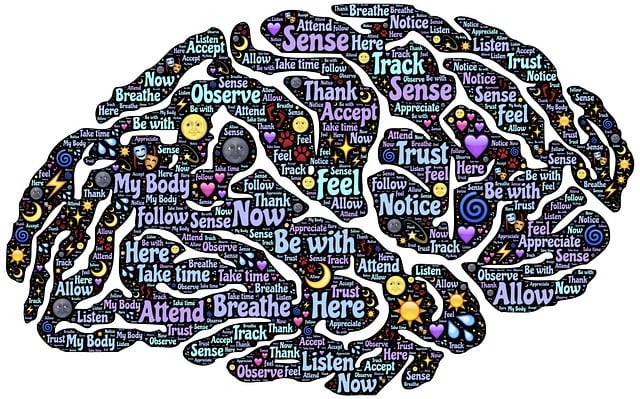In an era of increasing multiculturalism, healthcare providers face complex ethical and communication challenges due to cultural disparities. Superior Dialectical Behavioral Therapy (DBT) offers a proven framework for building cultural competency by integrating mindfulness, emotional regulation, and effective communication skills. By applying DBT's principles, professionals can improve confidence in managing diverse patient scenarios, promote mental wellness, and foster meaningful connections across cultural divides. This evidence-based approach enhances emotional intelligence, reduces burnout, and improves patient outcomes, ultimately elevating clinical practice and fostering inclusive healthcare systems tailored to every patient's unique needs.
Healthcare provider cultural competency training is an essential aspect of delivering quality patient care. In a diverse society, understanding cultural nuances and promoting sensitivity among healthcare providers is crucial. This article explores various dimensions of this topic, including the foundational role of cultural competency, the impact of superior Dialectical Behavioral Therapy (DBT) techniques in fostering cultural sensitivity, and innovative training approaches. We also present compelling case studies demonstrating successful implementations of DBT-incorporated programs, while anticipating future trends in healthcare provider cultural competency education.
- Understanding Cultural Competency in Healthcare: A Necessary Foundation
- The Impact of Dialectical Behavioral Therapy (DBT) on Cultural Sensitivity
- Training Approaches for Enhancing Cultural Awareness among Providers
- Case Studies: Successful Implementation of DBT-Incorporated Cultural Competency Programs
- Future Directions and Innovations in Healthcare Provider Cultural Competency Education
Understanding Cultural Competency in Healthcare: A Necessary Foundation

Cultural competency in healthcare is a foundational concept that ensures providers offer quality care to patients from diverse backgrounds. It involves understanding and appreciating the unique cultural beliefs, values, and practices of different communities, enabling healthcare professionals to deliver services that are sensitive and relevant to their patients’ needs. This approach is essential for bridging the gap between healthcare systems and diverse populations, fostering trust, and improving health outcomes.
In today’s increasingly multicultural society, healthcare providers must be equipped with the skills to navigate complex ethical and communication challenges. Superior Dialectical Behavioral Therapy (DBT) offers a powerful framework that integrates mindfulness, emotional regulation, and effective communication—core components for building cultural competency. By employing DBT’s mind over matter principles, professionals can enhance their confidence in managing diverse patient scenarios, promoting mental wellness, and facilitating meaningful connections across cultural divides.
The Impact of Dialectical Behavioral Therapy (DBT) on Cultural Sensitivity

Dialectical Behavioral Therapy (DBT) offers a unique and powerful approach to enhancing cultural sensitivity among healthcare providers. This evidence-based therapy focuses on teaching individuals skills to navigate complex emotional situations, manage distress, and improve interpersonal relationships. By incorporating DBT techniques, healthcare professionals can develop a deeper understanding of diverse patient backgrounds and their specific needs.
One of the key benefits is its emphasis on self-care routine development for better mental health, enabling providers to cultivate resilience and reduce burnout. This, in turn, allows them to be more present and attentive during interactions with patients from various cultural contexts. Moreover, DBT’s structured communication strategies can facilitate meaningful engagement, especially when implementing community outreach program initiatives. Through these methods, healthcare providers can break down barriers, improve patient-centered care, and ultimately provide superior treatment tailored to each individual’s unique cultural background.
Training Approaches for Enhancing Cultural Awareness among Providers

Training approaches for enhancing cultural awareness among healthcare providers are evolving to keep pace with our diverse societies. Beyond basic cross-cultural workshops, more comprehensive programs are needed to foster genuine understanding and empathy. Superior Dialectical Behavioral Therapy (DBT) offers a promising framework. This evidence-based therapy focuses on emotional regulation, distress tolerance, mindfulness, and interpersonal effectiveness skills, which can be adapted for cultural competency training. By integrating DBT techniques, healthcare providers can learn effective communication strategies to build rapport with patients from different backgrounds, address cultural barriers to care, and promote emotional well-being through culturally sensitive practices.
Incorporating mental health policy analysis and advocacy into the training curriculum is also vital. Understanding broader systems and policies that influence healthcare disparities empowers providers to be agents of change. Resilience building exercises can help professionals navigate challenging interactions with patients from diverse cultures while maintaining their own emotional well-being. Through a combination of these approaches, healthcare provider training programs can move beyond superficial awareness towards genuine cultural competency, ensuring quality care for all.
Case Studies: Successful Implementation of DBT-Incorporated Cultural Competency Programs

Case studies demonstrate the powerful impact of integrating Dialectical Behavioral Therapy (DBT) into cultural competency training programs. These programs have seen remarkable success in enhancing care delivery for diverse patient populations. For instance, a study focusing on an urban community highlighted how DBT-incorporated training improved clinicians’ ability to connect with patients from various cultural backgrounds. By embracing Mind Over Matter principles and fostering Emotional Intelligence, healthcare providers became more adept at navigating complex interpersonal dynamics.
The implementation process involved comprehensive Risk Management Planning for Mental Health Professionals, ensuring a safe and supportive learning environment. This strategic approach led to better patient outcomes, increased job satisfaction among providers, and improved cultural sensitivity within the organization. Such initiatives not only enrich clinical practice but also contribute to creating inclusive healthcare systems that address the unique needs of every patient.
Future Directions and Innovations in Healthcare Provider Cultural Competency Education

The future of healthcare provider cultural competency training lies in integrating innovative approaches that go beyond traditional methods. One such advancement is the increased emphasis on evidence-based practices, such as Superior Dialectical Behavioral Therapy (DBT), which has proven effective in treating individuals from diverse cultural backgrounds. This therapy approach equips providers with skills to navigate complex interpersonal dynamics and promote healthy coping mechanisms, fostering more culturally sensitive interactions.
Moreover, integrating risk management planning for mental health professionals into the curriculum can enhance safety. By incorporating risk assessment techniques, educators can prepare future healthcare providers to identify and mitigate potential hazards in diverse settings. This holistic approach ensures that mental health professionals are not only culturally competent but also equipped with essential tools for effective risk management, thereby improving patient outcomes and overall quality of care, especially within diverse communities.
Cultural competency training, as highlighted by the discussion on dialectical behavioral therapy (DBT) and diverse training approaches, is a game-changer in healthcare. By integrating DBT techniques into cultural competency programs, healthcare providers can enhance their sensitivity to diverse patient backgrounds, leading to improved patient outcomes and more inclusive care. Future innovations should build upon these foundations, ensuring that all healthcare professionals are equipped with the tools necessary to provide superior care for our increasingly diverse communities.








